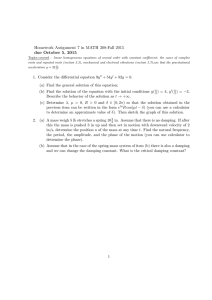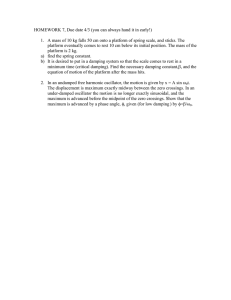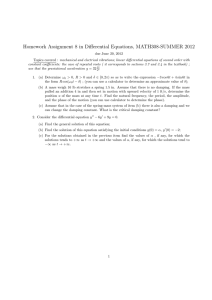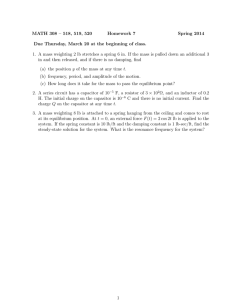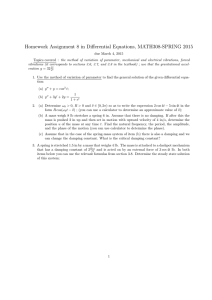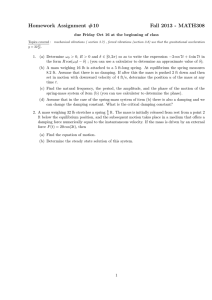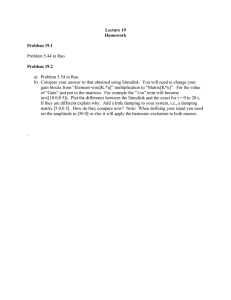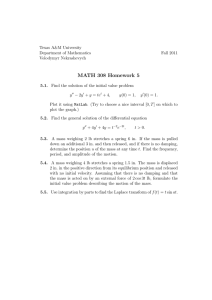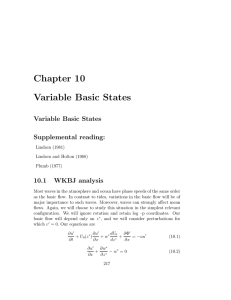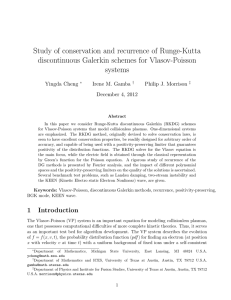Exercises
advertisement
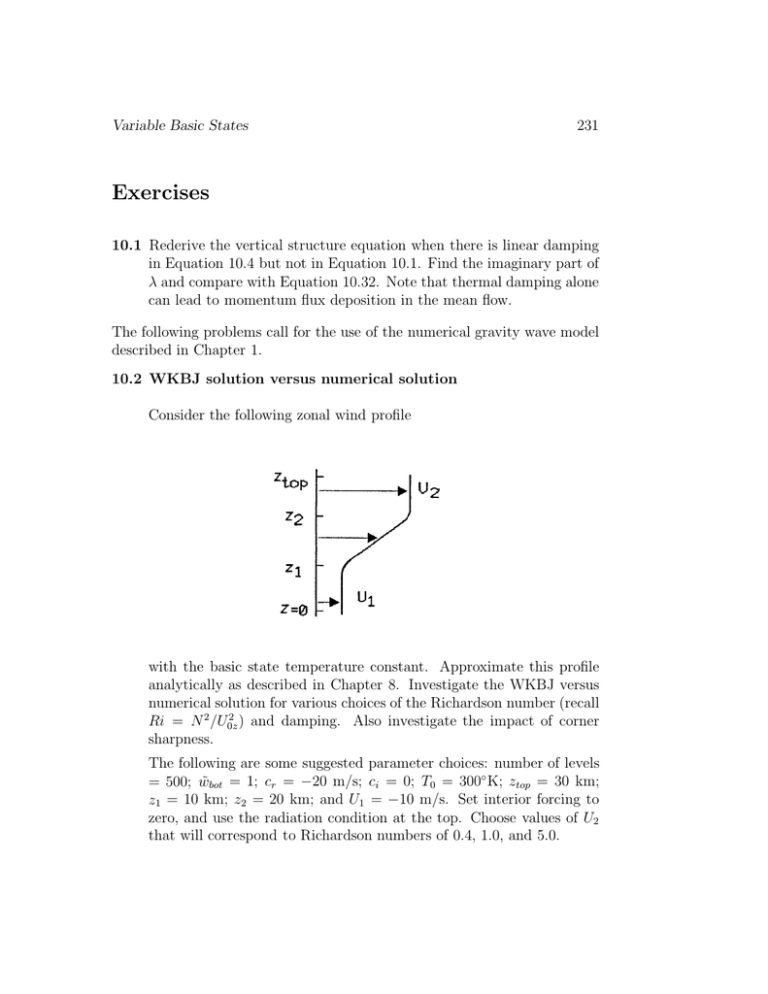
Variable Basic States 231 Exercises 10.1 Rederive the vertical structure equation when there is linear damping in Equation 10.4 but not in Equation 10.1. Find the imaginary part of λ and compare with Equation 10.32. Note that thermal damping alone can lead to momentum flux deposition in the mean flow. The following problems call for the use of the numerical gravity wave model described in Chapter 1. 10.2 WKBJ solution versus numerical solution Consider the following zonal wind profile with the basic state temperature constant. Approximate this profile analytically as described in Chapter 8. Investigate the WKBJ versus numerical solution for various choices of the Richardson number (recall Ri = N 2 /U02z ) and damping. Also investigate the impact of corner sharpness. The following are some suggested parameter choices: number of levels = 500; w̃bot = 1; cr = −20 m/s; ci = 0; T0 = 300◦ K; ztop = 30 km; z1 = 10 km; z2 = 20 km; and U1 = −10 m/s. Set interior forcing to zero, and use the radiation condition at the top. Choose values of U2 that will correspond to Richardson numbers of 0.4, 1.0, and 5.0. 232 Internal Gravity waves 10.3 Numerical resolution of critical lines Specify the phase velocity (cr ) such that there is a critical level some­ where in the domain. Investigate the numerical solution for various choices of the damping rate and number of levels. It is suggested that you try 1000 levels, with the profile and boundary conditions in Prob­ lem 10.2 that corresponded to Ri = 5. Try choices of ci that do and don’t permit damping to dominate over the numerically resolved dis­ tance (viz. Equation 10.31). 10.4 Show that for internal gravity wave propagation, in the presence of small damping, that the attenuation of the wave in the direction of propagation depends exponentially on the ratio of the wave travel time, as determined by the group velocity in the direction of propagation, to the characteristic damping time.
